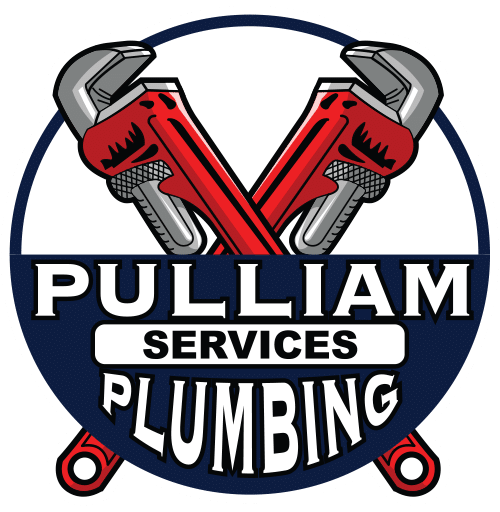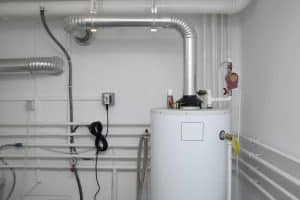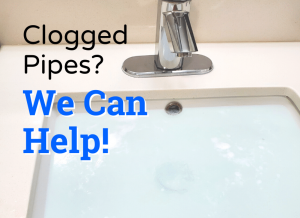Hard water issues are common in many households and can cause mineral buildup in your plumbing system, negatively affect your appliances, and diminish the overall quality of your water. One effective solution for addressing these problems is the installation of a water softener. As the highest-rated plumbing company in Boerne and Fair Oaks, Texas, Pulliam Plumbing is committed to providing informative, intent-driven content to help homeowners understand the benefits of water softeners, the different types available on the market, and the importance of proper installation and maintenance.
By understanding the advantages of water softeners and partnering with skilled professionals like the team at Pulliam Plumbing, you can make an informed decision about whether a water softener is the right solution for your home. Allow us to guide you through the process, from selecting the best system for your needs to maintaining it for years of reliable and efficient performance.
1. The Key Benefits of Water Softeners
Investing in a water softener can positively impact your home in several ways. Here are some of the primary benefits of installing a water-softening system:
- Extended appliance lifespan: Hard water can cause mineral deposits and scaling on appliances like dishwashers and washing machines, leading to reduced efficiency and a shorter lifespan. A water softener can prevent these issues, prolonging the life of your appliances.
- Improved water quality: Soft water provides a better taste and eliminates the effects of hard water on your skin and hair. It also helps with keeping your clothes and dishes cleaner and brighter.
- Reduced energy costs: By eliminating mineral buildup in your water heater, a water softener can improve its efficiency and lower your energy expenses.
- Lower maintenance expenses: Minimizing scale buildup in your plumbing system can reduce the frequency and cost of maintenance and repairs.
2. Types of Water Softeners and Choosing the Right One
Understanding the various types of water softeners will help you select the best option for your home. Here are some popular choices:
- Salt-based ion exchange softeners: These systems use sodium ions to replace calcium and magnesium ions in the water, effectively softening it. Regular maintenance, including adding salt and cleaning the brine tank, is essential.
- Salt-free water conditioners: Instead of using salt, these systems employ a potassium-based medium or a mechanical process to alter the minerals’ structure, preventing scale buildup. They require less maintenance than salt-based softeners.
- Reverse osmosis systems: These softeners use pressure to force water through a semi-permeable membrane, eliminating a majority of the minerals and contaminants present in the water.
When choosing a water softener, consider factors such as the hardness level of your water, the size of your household, your water usage patterns, and the available installation space.
3. The Importance of Professional Water Softener Installation
While DIY installation may seem like a tempting option, enlisting the help of professional plumbing experts is vital to ensuring the optimal performance and longevity of your water softener system. Here are some reasons to opt for professional installation services:
- Proper sizing and type selection: A professional plumber can assess your home’s water hardness levels, water usage patterns, and specific needs to recommend the most suitable water softener type and size.
- Compliance with local codes and regulations: Professional plumbers have in-depth knowledge of local plumbing codes and guidelines, ensuring that your water softener installation adheres to all safety and legal requirements.
- Technical expertise: Expert plumbers have the skills and experience necessary to handle the complexities of water softener installation, such as proper connections, drainage, and electrical requirements.
- Warranty protection: Many water softener manufacturers require professional installation to maintain the validity of their warranty. By working with qualified professionals, you can protect your investment and ensure coverage in case of unforeseen issues.
4. Proper Water Softener Maintenance and Care
Regular maintenance is essential to ensuring the long-term efficiency and performance of your water softener system. Some key maintenance tips include the following:
- Regularly adding salt: Depending on the type of system and usage, salt should be added every 4-6 weeks. Always follow the manufacturer’s recommendations for salt types and levels.
- Cleaning the brine tank: Clean the brine tank at least once a year to remove any sediment and maintain the softener’s efficiency.
- Checking for leaks: Regularly inspect connections, valves, and drainage systems for any signs of leaks or damage, and repair or replace as needed.
- Scheduling professional maintenance: Schedule yearly checkups with a professional plumber to ensure your system is functioning properly and to address any potential issues.
Conclusion
By understanding the benefits of water softeners and learning about the different types available on the market, you can make an informed decision about whether a water softening system is the right solution for your home. Additionally, relying on professional installation and maintenance services will guarantee the optimal performance, efficiency, and longevity of your investment.
For all your water softener installation and maintenance needs, trust the team at Pulliam Plumbing, the highest-rated plumbers in Boerne, TX. Our knowledgeable professionals are dedicated to providing exceptional service, guidance, and support to help you enjoy the many benefits of an efficient and effective water-softening system.




